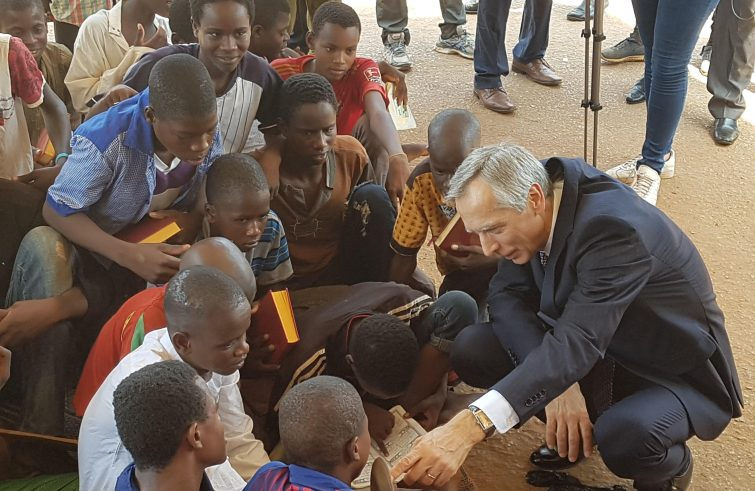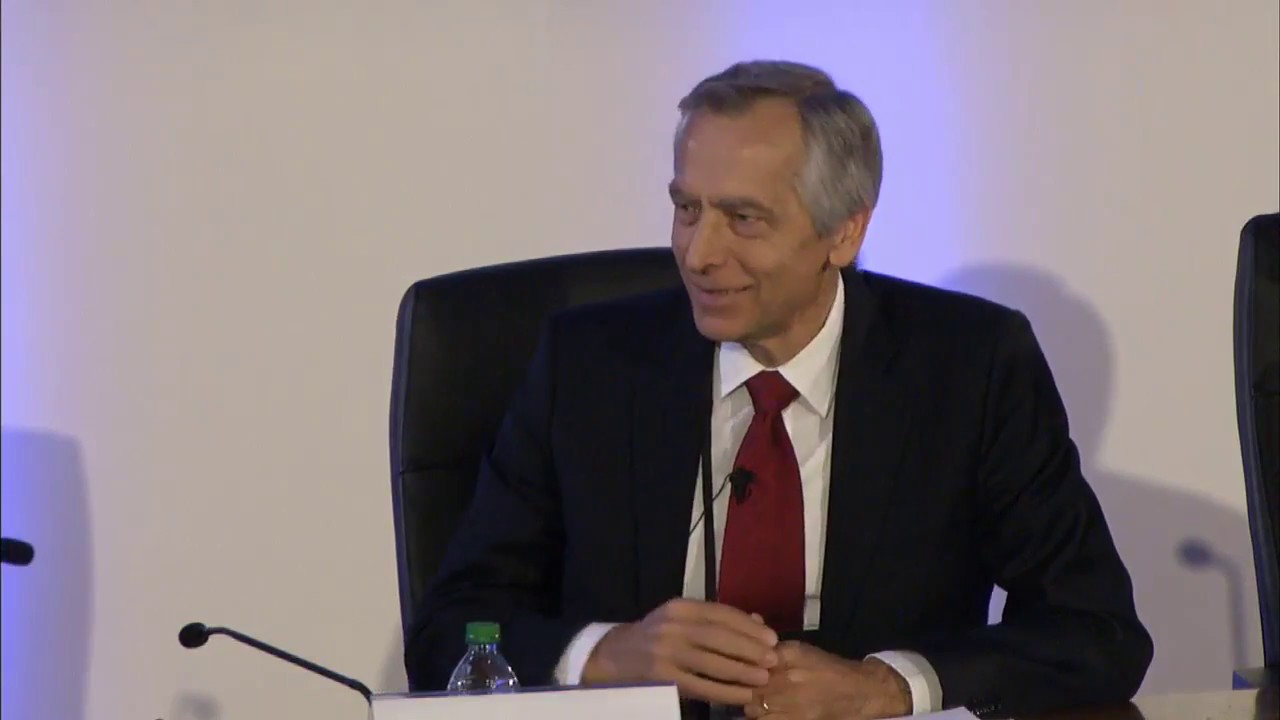Category: Language
-
Počet prenasledovaných ľudí vo svete pre svoju vieru rastie
Osobitný veľvyslanec EÚ pre podporu slobody náboženstva alebo viery mimo EÚ Ján Figeľ vysvetlil, že náboženská sloboda je expanzívne ľudské právo. Bratislava 23. novembra (TASR) – Počet prenasledovaných ľudí pre svoju vieru rastie. Vyplýva to zo Správy o stave náboženskej slobody vo svete, ktorú v piatok predstavili v Bratislave. Správu pripravila pápežská nadácia ACN –
-
EU Special Envoy for religious freedom should get a stronger mandate
“There is evidently higher awareness of importance of religious freedom. Special political positions, diplomatic agendas and supportive projects devoted to the situation of religious or belief minorities have been established during the last years in Denmark, Germany, United Kingdom, Hungary, Poland, Italy. There was the first ever Ministerial Summit on Advancement of Religious Freedom organized
-
Tak biedne pomery, aké vídavam vo svete, si naša mládež nevie predstaviť
Veľa cestujete, nedávno ste sa vrátili z Burkina Faso, pred tým ste boli v Libanone. Na základe čoho si tieto krajiny vyberáte a čo je Vašou úlohou, keď ich navštívite? Na návštevu ma pozval prezident Burkina Faso Roch Kaboré v júni. Pred rokom som v tomto regióne Sahelu navštívil Senegal. Tieto krajiny sú ekonomicky chudobné,
-
Nevzdávam sa, vidím okolo seba ťažšie kríže
V rozhovore hovorí osobitný vyslanec EÚ pre náboženské slobody vo svete – Ján Figeľ – o svojich cestách, zdravotnom stave i dôležitosti svojho mandátu. Veľa cestujete, nedávno ste sa vrátili z Burkina Faso, pred tým ste boli v Libanone. Na základe čoho si tieto krajiny vyberáte a čo je Vašou úlohou, keď ich navštívite? Na
-
Religious freedom in the world: Figel’ (EU), “violence and discrimination: collective, determined action is needed
The former European Commissioner serves as Special Envoy for the promotion of the freedom of religion or belief outside the EU. He illustrated to SIR the tragic situation in many Countries today. “We need a criterion to measure the degree of our civilization, namely a human rights litmus test. Through reasonable, timely tokens of solidarity
-
Libertà religiosa nel mondo: Figel’ (Ue), “violenze e discriminazioni, serve un’azione decisa e cora
L’ex commissario europeo ricopre l’incarico di inviato speciale per la promozione della libertà di religione o di credo nel mondo. Al Sir spiega la drammatica situazione che si registra oggi in molti Paesi. “C’è in gioco – chiarisce – un criterio di civiltà. Si tratta di una cartina di tornasole di tutti i diritti umani.
-
Video rozhovor: Európa trpí stratou pamäti, mnohí smútia za totalitnou minulosťou
Hosťom Pavla Demeša v relácii SVET Tu a teraz je osobitný vyslanec pre podporu slobody náboženstva alebo viery mimo EÚ Ján Figeľ. Počas troch rokov pôsobenia vo funkcii vyslanca navštívil Ján Figeľ viac než 30 krajín, pretože Európska únia je podľa neho dôležitým partnerom pre mnohé štáty sveta. Jednou z najcitlivejších bola návšteva Iraku počas
-
Najlepšou odpoveďou je oslobodený Petr Jašek
Od roku 2016 vo funkcii osobitného vyslanca pre podporu náboženskej slobody a presvedčenia mimo Európskej únie pôsobí Ján Figeľ. V rozhovore sme sa pýtali na výsledky tohto obdobia i na perspektívu tejto novej agendy do budúcnosti. Čo osobne považujete za najvýraznejšie konkrétne úspechy za obdobie viac ako dvoch rokov v tomto úrade? Celkovo je to
-
Protection of International Religious Freedom and Human Dignity – BYU Law – 2018 Annual Symposium
2018 Annual Symposium – The 25th Annual International Law and Religion Symposium of the International Center for Law and Religion Studies (ICLRS) at the J. Reuben Clark Law School of Brigham Young University First Plenary Session: Protection of International Religious Freedom and Human Dignity Brett G. Scharffs Director, International Center for Law and Religion Studies,
-
Má Figeľova funkcia zmysel? Čo ukázali dva roky
Keď ho na jar 2016 Európska únia menovala na post osobitného vyslanca pre náboženskú slobodu, zaznievali hlasy, že ide o „trafiku“ pre politika, ktorý doma neuspel. Mal tento nový post doposiaľ zmysel? V Denníku N nedávno prebehla polemika medzi publicistom Ľubomírom Martinom Ondráškom (ktorý prispieva aj pre Postoj) a českým humanitárnym pracovníkom Petrom Jašekom. Prvý










